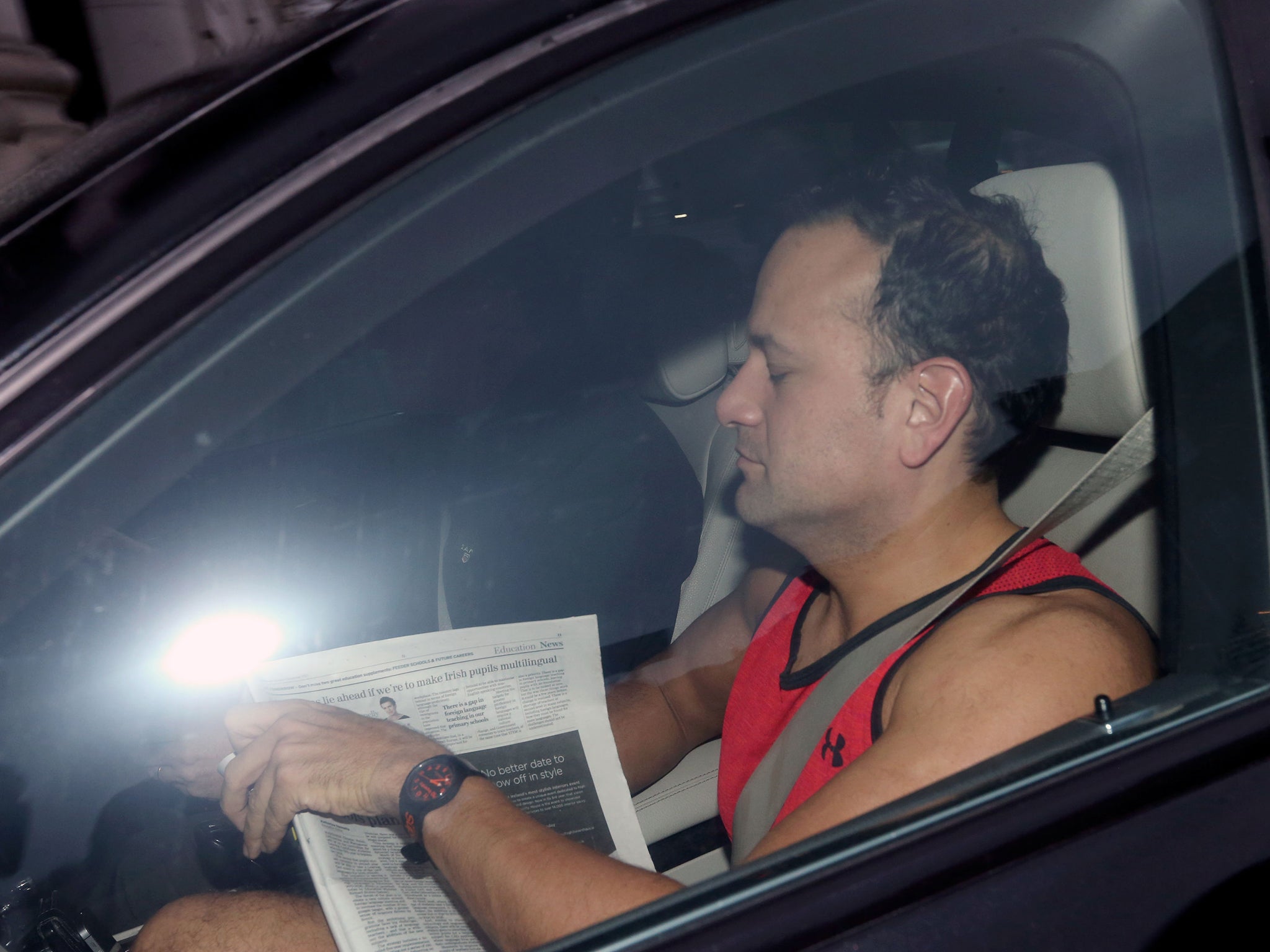Irish PM Varadkar: Brexit text on border was agreed by UK and it is 'disappointing' May could not agree deal
'I am surprised and disappointed that the British Government now appears not to be in a position that was agreed earlier today,' said Leo Varadkar
Your support helps us to tell the story
From reproductive rights to climate change to Big Tech, The Independent is on the ground when the story is developing. Whether it's investigating the financials of Elon Musk's pro-Trump PAC or producing our latest documentary, 'The A Word', which shines a light on the American women fighting for reproductive rights, we know how important it is to parse out the facts from the messaging.
At such a critical moment in US history, we need reporters on the ground. Your donation allows us to keep sending journalists to speak to both sides of the story.
The Independent is trusted by Americans across the entire political spectrum. And unlike many other quality news outlets, we choose not to lock Americans out of our reporting and analysis with paywalls. We believe quality journalism should be available to everyone, paid for by those who can afford it.
Your support makes all the difference.Ireland is “surprised and disappointed” that the UK was unable to agree a Brexit deal, Prime Minister Leo Varadkar has said, after an acceptable outcome for the text was agreed earlier with the EU.
His comments came shortly after Theresa May and the European Commission President Jean-Claude Juncker told a press conference in Brussels that while progress had been made, they had failed to reach an overall agreement.
But Mr Varadkar said in Dublin that the Irish Government received confirmation earlier on Monday from both Downing Street and EU officials that a text on the contentious issue of the Irish border had been agreed, and “met the concerns” of the Irish Republic.
The text, the Irish PM hoped, would have formed part of the broader UK-EU agreement on phase one of the negotiations and “would allow us all to move onto phase two”.
He continued: “I am surprised and disappointed that the British Government now appears not to be in a position that was agreed earlier today.
“I accept that the Prime Minister has asked for more time and I know that she faces many challenges and I acknowledge that she is negotiating in good faith. But my position and that of the Irish Government is unequivocal.
“Ireland wants to proceed to phase two – it’s very much in our interests to do so. However, we cannot agree to do this unless we have firm guarantees there will not be any hard border in Ireland.
“I have spoken to President Juncker again in the last hour and he has confirmed to me that our position remains Europe’s position and I still hope this matter can be concluded in the coming days as was agreed.”

A breakthrough on the issue appeared on the cards on Monday but hopes were dashed by the Democratic Unionist Party (DUP), who Ms May currently relies on to prop up her fragile Government in Westminster.
After reports emerged that the UK Government was considering a deal on the border that would have effectively provided Northern Ireland with a special status over the rest of the UK, the DUP reacted furiously. They said the party would stop any efforts “which separates Northern Ireland economically or politically from the rest of the United Kingdom”.
Speaking at a brief press conference in the European Commission building after a three-hour “working lunch” with the PM, Mr Juncker said: “Despite our best efforts and the significant progress we and our teams have made over the past days on these main withdrawal issues it was not possibly to reach a complete agreement today.”
Despite the setback Mr Juncker said he was still confident of reaching “sufficient progress” before next week and said the UK and EU would meet again for more discussions before the European Council summit on 14 and 15 December. He said Ms May was a “tough negotiator” and “not an easy one” and was defending “the point of view of Britain with all the energy we know she has”.
The Prime Minister echoed his sentiments. “We have had a constructive meeting today, both sides have been working hard in good faith, we’ve been negotiating hard and a lot of progress has been made. But one a lot of the issues there is a common understanding and it’s clear, crucially, that we want to move forward together,” she said.
“On a couple of issues some differences do remain which require further negotiation and consultation and those will continue.”

Join our commenting forum
Join thought-provoking conversations, follow other Independent readers and see their replies
Comments